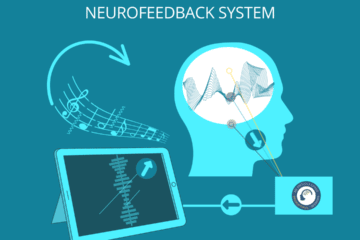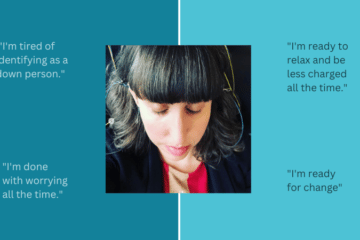Travis came into my office noticeably happier than the previous week when he came in hurt and angry that his girlfriend, Jenny, had been 20 minutes late for a lecture he was giving.
I had a better week with my girlfriend.
He said smiling.
I told her my conditions for staying together and she really wants to do everything she can so we don’t break up. I told her she can never be late for important events. And that she has to work harder on finding a job.
His level of anger and hurt the previous week had been disproportionate to the seriousness of her offence. That gave me a hint that his reaction wasn’t just about Jenny. I knew Travis’ history and remembered that his mother was lousy at showing up for him as a boy and struggled to hold down a job. I asked him,
What do you think it means that she was late for your big lecture?
It’s clear. She doesn’t respect me. She’s inconsiderate. I can’t tolerate it. I was ready to break up with her last week over this. He was very firm as he described his reaction.
What are you feeling as you describe what you think motivated her action?
I asked.
I’m angry.
And what else?
He paused for a moment then said in a softer voice,
And afraid. What if she’s always like this?
And what if she is? What do you imagine the impact would be on you?
He answered with his gut reaction:
I won’t get ahead. My career will suffer. And I’ll be with someone who doesn’t put me first.
OK. And who does this remind you of?
Augh. My mother. Shit. Does everything have to be about her?
He said annoyed at the cliche.
This is suffering. Suffering from the Buddhist point of view is not being physically harmed so much as it is the pain that arises from constantly misperceiving the present moment. We confuse the past with the present. This is what we humans do: we project the unfinished past karma onto the present. The good news about the present is that unlike back when you were a boy and dependent on others to determine the quality of your life, the woman in your life today doesn’t have to have much impact.
“How did the lecture go?”
“It was great. One of my best. I see what you’re saying. These are old feelings: hurt, afraid I won’t get my needs met, like when I was a boy and my mom wasn’t present.”
Part of the projection is the assumption that we have the resources NOW that we had back then, so yes, as a child if your mom didn’t show up it would mess up your future. But if Jenny doesn’t show up, your career is fine. That feeling of hurt and fear is about then not now.
Chögyam Trungpa Rinpoche described how we project our minds onto others, analogous to how a projector projects its images onto a movie screen. Our habitual thoughts are the movie reel projected onto the people we care for. This analogue is very similar to the concept of projection as described in Western psychology.
He described how the nature of suffering as sentient beings is the fact that we are not aware that we are projecting our karmic seeds (our habitual repetitive emotions and thoughts) onto our worlds and then reacting to them. In a similar way, Travis was projecting his feelings from childhood onto Jenny.
Next blog we’ll discuss how to recognize these patterns of projecting onto others and what to do differently so that we can know and feel what’s the present and what are remnants of the past.
 Natalie Baker, the founder of Buddhist Psychotherapy NY & Neurofeedback NY (Neurofeedback Training Co.), is a licensed psychotherapist and an advanced Zengar certified neurofeedback trainer in New York. She has over fourteen years of experience as a psychotherapist in NYC treating clients with conditions such as PTSD, trauma, anxiety, depression, and relationship issues, and over 20 years of experience with mindfulness training.
Natalie Baker, the founder of Buddhist Psychotherapy NY & Neurofeedback NY (Neurofeedback Training Co.), is a licensed psychotherapist and an advanced Zengar certified neurofeedback trainer in New York. She has over fourteen years of experience as a psychotherapist in NYC treating clients with conditions such as PTSD, trauma, anxiety, depression, and relationship issues, and over 20 years of experience with mindfulness training.
My practice and study of Buddhism informs the process of my work. For example, I weave the meditation techniques of mindfulness and awareness into sessions through encouraging clients to use their present moment awareness as our guide.
Specialities: Anxiety, Depression, Life Transition Issues, Relationship Issues, Trauma, PTSD, ADHD, Sexual Abuse, Spiritual Impasses, Parenting, Meditation/Relaxation, Emotional Communication, and Intimacy
Counselling Services: Individual Psychotherapy, Marriage Counseling, Neurofeedback Training (EEG biofeedback), Group Therapy, Relationship Counseling, Premarital Counseling


